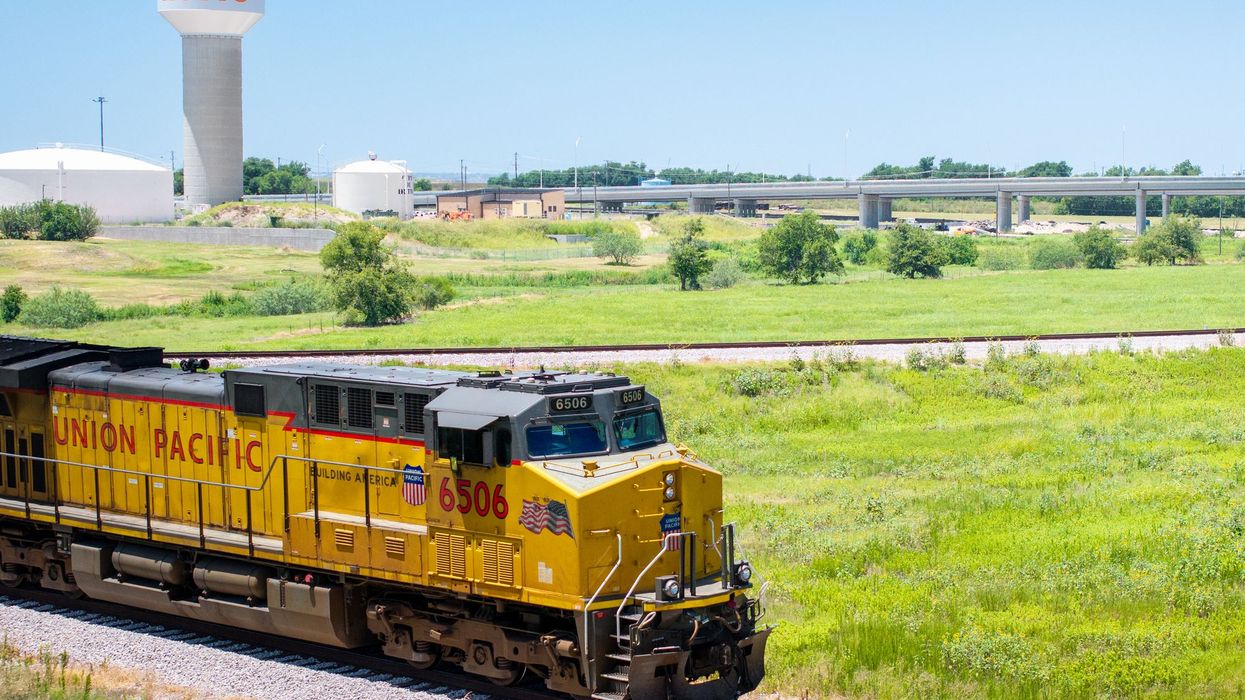- Although increasingly affected from afar by the fight against the cartels, Canada is curiously detached from the Mexican war on drugs
- Canada has numerous economic and political involvements in the Mexican status quo and multilateral and bilateral initiatives could be eyed for their implementation
- Canadian "me-tooism" towards the U.S. eliminates drug de-criminalization as a credible alternative for Ottawa even though 56 percent of Canadian respondents to a poll favor the legalization of marijuana.
As the war on drugs rages on in Mexico, the United States is beginning to seriously suffer from the consequences of its heightened violence. U.S. authorities increasingly have been trying to address the problem in collaboration with Mexican authorities, as underlined by Secretary of State Hillary Clinton's recent announcement of some financial aid for the purchase of military equipment - including two Blackhawk helicopters - to help the Mexican government in its life and death fight against the cartels.
Somewhat after the fact, Mexico's other northern neighbor, Canada, is also starting to suffer from the ramifications of the Mexican war on drugs. Vancouver, the city host to the 2010 Winter Olympics and once one of the safest places in Canada, has been dubbed the Canadian gang capital. So far in 2009, more than 30 shootings - which is unprecedented - have taken place in British Columbia's largest city, compared to 48 shootings in all of 2008.
There is, in fact, an increasingly ominous connection between the fight against the cartels in Mexico and the growing insecurity in a number of areas in Canada. Recent gang-related violence in British Columbia and elsewhere in the country is "directly related to this Mexican war," said Royal Canadian Mounted Police (RCMP) superintendent Pat Fogarty in a televised interview with the Canadian Broadcasting Corporation (CBC). The war on drugs in Mexico has only made things worse in Canada. "When the supply of cocaine is hampered by crackdowns in Mexico or in the United States and the price goes up", says Fogarty, "competition for the remaining kilos gets tense in Canada." As in any market, when the offer is lower than the demand, the prices go up. According to the RCMP, the price of cocaine on the Canadian market has doubled in the last six months, skyrocketing to $50 000 per kilo. Consequently, suppliers will go to great lengths to get their hands on the product. This in turn can lead to increased violence, with gangs currently competing amongst themselves to find scarce sources of cocaine and other illegal drugs.
Canada's Nonchalance
While the U.S. has designated Mexico as the venue of one of its top security threats, just behind Iran and Pakistan, and certainly among the top security priority in the hemisphere, the situation is not as grave in Canada. Presently, Canadian officials have been very discreet about expressing such concerns towards Mexico, unlike the United States, Canada has not put out an official travel warning its nationals traveling to Mexico and they certainly respect U.S. sensibilities by refraining from even any mention of the strategy of the decriminalization of drugs, which would take the violence and crime out of the drug trade. Ottawa's timorous is rather curious given the fact that a poll indicates that 56 percent of all Canadians support the legalization of marijuana. On its official website, Foreign Affairs and International Trade Canada, the Ottawa agency responsible for such determining, simply stated that "Canadians should be particularly vigilant in northern Mexico and all cities bordering the United States, particularly when traveling to the cities of Tijuana and Ciudad Juarez, as firefights between the military and drug cartels can occur without warning at any time."
Canada presently is facing similar problems as is the United States in its relation with Mexico. Although the two countries are not geographically as close, the Mexican plight, including the fight against the cartels, is becoming a Canadian problem, as well. Interrelated issues such as drug trafficking, gun smuggling, border security and illegal immigration all have had an impact on North America as a whole. For instance, although illegal immigration from Mexico is not a ranking issue in Canada, immigration still constitutes an important complication of the Mexican crisis. Mexico has been Canada's number one source for asylum seekers coming north during the past three years, some applicants now claim that they have to leave their country because their security is threatened by the drug cartels.
During the past year alone, a record 9,456 Mexican refugee claimants have arrived in Canada, a third of the total 36,895 for all of Canada's refugee claimants for 2008. According to Ottawa officials, it is clear that this number is somehow linked to the Mexican cartels' bloody war. This sharp rise in refugee claims from Mexico coincides with the intensification of the drug-related violence in that country. In 2008, 5,300 people were murdered as a result of the war on drugs in Mexico. So far, in 2009, more than a 1000 deaths related to drug violence occurred, which means that the flow of asylum seekers from Mexico is not about to soon dry up.
Canada, however, is reacting very slowly to the worsening situation in Mexico. Strangely enough, it seems to be apathetic, or at least complacent, when it comes to the problems Mexico is now facing. There is obviously a lack of involvement, even though the problem is there to be vividly seen. Those alert to the severity of the situation strongly feel that Canada needs to engage in President Felipe Calderon's struggle to win the war against drugs. Not only because the precarious conditions in Mexico could be about to have a dire spillover effects on certain areas in Canada but, perhaps more importantly, because Canada should also be willing to put its words into action. Since Stephen Harper, Canada's Prime Minister, was elected in 2006, he has vowed to make the Americas a foreign policy priority within a framework of strengthened multilateralism and cooperation. One of the three key objectives of the Harper government's "Americas strategy" is to meet new security challenges in the hemisphere. Despite this allegedly concrete strategy for engagement, little has been done by Ottawa to alleviate the migrant situation in Mexico.
Why Canada Should Care
Canada has to come to understand that relations with Mexico are very important to the country, and thus that the nation has a real and tangible interest in any solution to Mexico's present crisis of recurring crime, violence, poverty and corruption. For instance, economic ties are growing stronger between the two countries, not only within the NAFTA framework, but also increasingly so, bilaterally. Trade between Canada and Mexico has increased steadily during the past decade, amounting to $21 billion in 2007. This figure is admittedly small in comparison to the $166 billion of trade between Canada and the U.S., but it is not insignificant by any means. Furthermore, over 2,000 Canadian companies are operating in Mexico. Bombardier opened an aerospace factory in Queretaro in 2007, while Scotiabank is Mexico's seventh-biggest bank, employing almost 10,000 of its nationals.
Moreover, Canada is seen throughout the Americas, and particularly in the United States and Mexico, as a reliable friend and ally. Failure to get involved in Mexico's current concerns would undermine Canada's credibility as a hemispheric actor. Those persuaded by the argument maintain that Canada should stay true to the spirit of multilateralism and to its honest-broker's tradition and get involved with its North American neighbors to tackle Mexico's extremely delicate present situation.
In an interview with the Toronto newspaper, The National Post, Canadian Public Safety Minister Peter Van Loan, underlined the importance for Canada to get involved in the fight against the cartels: "I think we all share that concern within North America. We are quite familiar with the fact that Mexico is a transshipment spot to Canada. There is a direct impact from the level of organized crime there to the level of organized crime here."
Multilateral and Bilateral Cooperation Possibilities
So far, little, if anything, has been undertaken by Canada to put into force existing resources that could be described as representing a serious act of North-American cooperation regarding the Mexican drug issue. One important tool at Canada's disposal would be a decision by Ottawa to play a meaningful role in aiding Mexico's fight against the cartels. This would be by means of the Inter-American Drug Abuse Control Commission (CICAD), an agency of the Organization of American States (OAS), responsible for strengthening the human and institutional capabilities of the hemisphere in order to reduce the production, trafficking and abuse of drugs in the Americas. Oddly enough, the Commission has not been addressing the Mexican war on drugs, with some calling on Canada to add this issue to CICAD's agenda in order to deal, on an emergency basis, with the worsening Mexican situation.
A Bilateral Approach
Also, bilateral initiatives cannot be ignored. One of the first steps would be to enhance collaboration among all of the police forces of North America. On March 23, the Attorney General of British Columbia, Wally Oppal, and his Mexican counterpart from Baja California, signed a statement of intent concerning an information-sharing agreement regarding transnational organized crime groups. Critics suggest that this approach should have been taken years ago and that it is far from being sufficient to unilaterally tackle the growing drug-related problems faced by British Columbia. However, technical assistance programs coming from local Canadian police forces and the RCMP, should be implemented shortly.
According to the U.S. State Department, Canada has strong anti-corruption controls in place and holds its officials and law enforcement personnel to a high standard of conduct. This valuable expertise could well be put to good use in the training of Mexican police forces and in the reforming of Mexican institutions. At the moment, paradoxically, Canadian security and intelligence agencies are not involved in Mexico at all. Canadian officers are beginning to argue that the time has now arrived for Canada to provide financial assistance and training expertise to Mexico's struggle against organized crime. Compared to the U.S. and its admittedly meager Merida Initiative ($400 million), Canada looks like an indifferent neighbor, unable or unwilling to help.
Two other very important aspects of bilateral cooperation on the drug issue are to slash the demand for drugs and to halt arms trafficking. Canada has to work with the U.S. on reducing domestic drug demand, because although the U.S. is by far the largest market for drugs transiting through Mexico, Canada is not exactly a negligible actor. Canadian officials say that more than 90% of all the drugs consumed in Canada originates from, or are transported through Mexico. Additionally, Canada has a serious stake in working with the U.S. to reduce illegal arms traffic. Toronto police reported that over half of the guns involved in homicides in Canada's largest city come from the U.S.
Canada is sure to come to play a bigger role in the Mexican war on drugs. As an ally and trade partner to Mexico, Canada has to realize the gravity of the situation now being faced by Mexico City and that it cannot content itself by merely watching from the sidelines while the rest of North America faces a serious crisis. Some would argue that it is not only a question of Canada's own security, which is increasingly being jeopardized by the events going on in the south, but also of being able to retain its credibility as a major hemispheric factor, which perhaps is bilaterally prepared to do its part to advance the well-being of its own region.
This analysis was prepared by COHA Research Associate Mylene Bruneau



